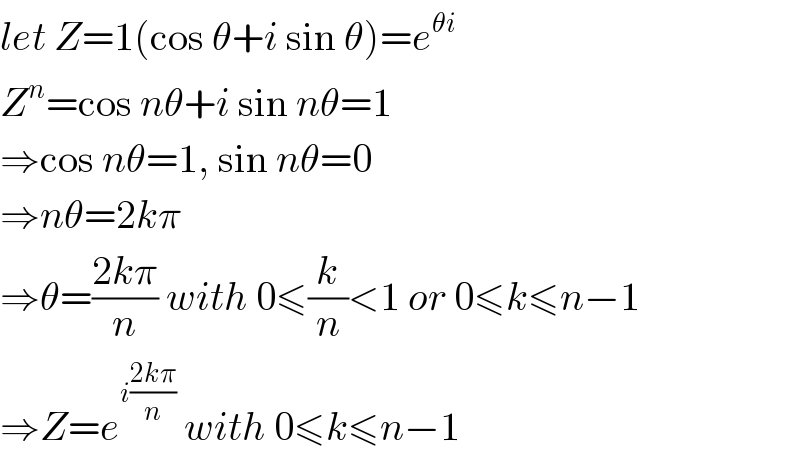
Question and Answers Forum
Question Number 57902 by maxmathsup by imad last updated on 14/Apr/19
![prove that the equation Z^n =1 have exacly n roots given by Z_k =e^(i((2kπ)/n)) k∈[[0,n−1]]](Q57902.png)
Commented by Abdo msup. last updated on 14/Apr/19
![let put Z =r e^(iθ) so Z^n =1 ⇔r^n e^(inθ) =e^(i2kπ) (k∈Z) ⇒ r^n =1 and nθ =2kπ ⇒r =1 and θ =((2kπ)/n) so the roots of this equation are Z_k =e^((i2kπ)/n) k ∈ Z due to Z_(−k) =Z_k ^− we can take k≥0 if k≤n−1 there is exacly n roots and k∈[[0,n−1]] if k>n let divide k by n ⇒∃(q,r) from N / k =qn +r and 0≤r≤n−1 ⇒ Z_k =e^(i((2(qn +r)π)/n)) =e^(i2qπ) e^((i2rπ)/n) =e^((i2rπ)/n) =Z_r so there is exatly nroots Z_k given by Z_k =e^((i2kπ)/n) and k∈[[0,n−1⌉].](Q57920.png)
Answered by mr W last updated on 14/Apr/19

Commented by mr W last updated on 14/Apr/19

Commented by maxmathsup by imad last updated on 14/Apr/19

